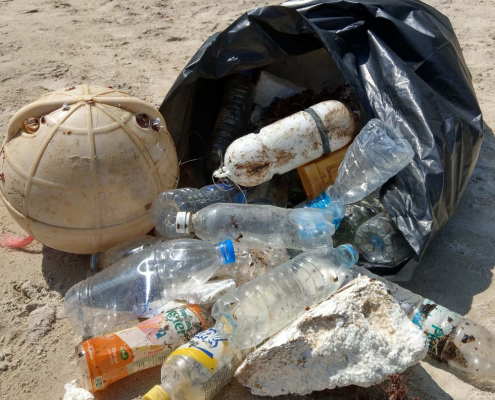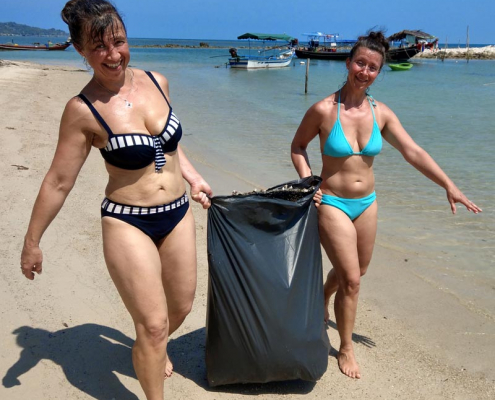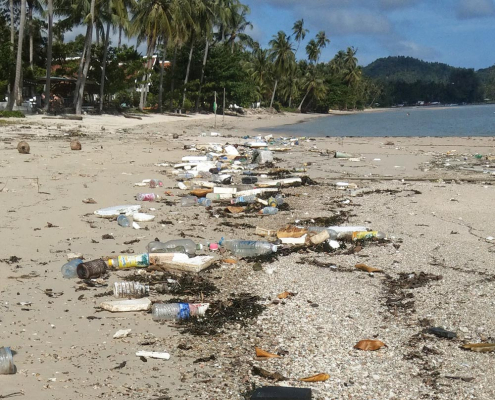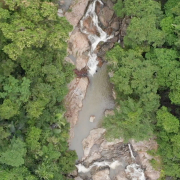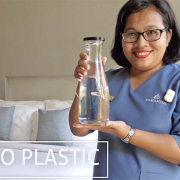 https://samahitaretreat.com/wp-content/uploads/2024/03/DJI_20231220135922_0003_D-scaled.jpg
1920
2560
Kirsten Mia
http://samahitaretreat.com/wp-content/uploads/2024/01/samahita-logo-v2.svg
Kirsten Mia2024-03-20 15:30:592024-03-20 15:30:59Travel, explore, be curious!
https://samahitaretreat.com/wp-content/uploads/2024/03/DJI_20231220135922_0003_D-scaled.jpg
1920
2560
Kirsten Mia
http://samahitaretreat.com/wp-content/uploads/2024/01/samahita-logo-v2.svg
Kirsten Mia2024-03-20 15:30:592024-03-20 15:30:59Travel, explore, be curious!Plastic Pollution and Our Environment
Do you know how much plastic you consume? You read statistics about it but have you looked at your own consumption and usage? Could you change your choice of materials and containers? The entire earth and the depths of the oceans are full of plastic. It enters the food chain. Shrimp found in the deepest ocean trenches have been found to contain microplastics.(1) This is both a local and global problem. Small decisions we make such as refusing a plastic bag or bottle has the potential to reduce waste by millions of items but corporate responsibility and government legislation ultimately has the most impact on a global scale.
Things you can do now
- Get reusable shopping bags
- Use a refillable water bottle
- If you live in a country without clean tap water buy large reusable water barrels instead of plastic bottles or use a water filter.
- Use glass containers to store food.
- Recycle plastics, metals and paper
- Clean up your immediate environment even if its not your mess.
Here at Samahita we’ve taken the decision to ban single use plastics including bottles and bags and encourage our guests to do likewise. As well as cleaning our beach front on a daily basis we also organise weekly beach cleans with our guests not only to improve our immediate environment but to bring people together and spread awareness of the problem. As you can see in these photos the majority of the waste we collect are plastic bottles, styrofoam and detritus from fishing boats. The oceans have become the de-facto dumping ground or final destination for plastics. So much so that no area is left untouched. Asia is particularly effected as many nations still throw rubbish into rivers as a matter of course. Once in the sea plastics break down into increasingly smaller parts known as microplastics that get consumed by marine life and enter the food chain.(2a)
Recycling plastic goes back decades but has recently hit upon some serious problems. Given the high volume of plastic usage in consumer societies even maintaining a recycling system is virtually impossible. Many countries use so much that the plastic collected for recycling is not recycled locally but exported to countries in Asia where environmental laws are lax or ill enforced. Much of this waste actually ends up in the sea. (1) Recently in the U.K recycling companies have come under fire for illegally exporting plastic waste to the far east where it is dumped and allowed to leak into rivers and oceans (2). China banned plastic waste imports in 2018 and much of this waste is now channeled through South East Asia where facilities are overwhelmed. (3)
Biodegradable plastics and bioplastics are being produced and used more widely but may not be as eco-friendly as they sound. Bioplastics are made from plant derivatives such as corn starch and biodegradable plastics are made from crude oil same as regular plastics, both have pros and cons. While biodegradable plastics break down more quickly when exposed to oxygen and light they simply break down into microplastics that continue to harm the environment and end up in the food chain. (4a) Whereas bioplastics are compostable only at high temperatures, ie. in industrial composting facilities, but will not breakdown in landfill or water. Also the production of bioplastics compete with conventional food production for farming resources.(4)
Legislation to ban single use plastics is the most powerful method to reduce plastic consumption. Many nations have set a positive example by banning plastics to varying degrees for example, 25 African nations have implemented bans on plastic bags.(5) However, as Africa accounts for only 1% of single use plastic usage globally these policies require international implementation. The European Union agreed to a ban on single use plastics in 2018.(6) Many cities in the USA have implemented bans or taxes on plastic bags but lag behind other nations who have implemented nationwide bans.(7) The UN Environment Assembly’s recent meeting in Kenya 11-15 March, 2019 proposed sweeping bans on single use plastics but final agreements were watered down after lobbying by the US government where oil companies have big plans to increase manufacturing of plastics.(8)
In the face of a multitude of factors we are left with our own attitudes and behaviours to the problem of plastic pollution. Cut out single use plastics, recycle where possible and clean up the mess wherever we find it. Supporting environmental movements and voting for change have the potential to make a big difference too. Personal decisions and local actions have global consequences. As Greenpeace say, “Think global, act local.”
References:
1. “More than 300 million tonnes of plastics are produced annually, and there are at least five trillion plastic pieces floating in our oceans.”
“a British team of researchers say they have discovered cases of plastic ingestion among tiny shrimp in six of the world’s deepest ocean trenches.” (pacific ocean trenches, deepest water in the world.)
https://phys.org/news/2019-02-plastic-deepest-ocean-animals.html
2a. “The data showed that a seabird ingesting a single piece of plastic had a 20 per cent chance of mortality, rising to 50 per cent for nine items and 100 per cent for 93 items.”
https://phys.org/news/2019-03-balloons-marine-debris-mortality-seabirds.html
2. “The plastics recycling industry is facing an investigation into suspected widespread abuse and fraud within the export system amid warnings the world is about to close the door on UK packaging waste, the Guardian has learned.”
3. China’s ban on trash imports shifts waste crisis to Southeast Asia
4. Study on environmental issues relating to bioplastics. Bioplastics still have a carbon footprint and lead arable land to be diverted for production.
Sustainability Metrics: Life Cycle Assessment and Green Design in Polymers
http://www.news.pitt.edu/sites/default/files/documents/TaboneLandis_etal.pdf
5. UNEP document
Data on single use plastic usage globally
6. E.U agree to ban on single use plastics.
https://www.dw.com/en/eu-reaches-agreement-on-single-use-plastic-ban/a-46797494
More from the Samahita Blog
